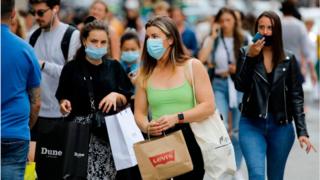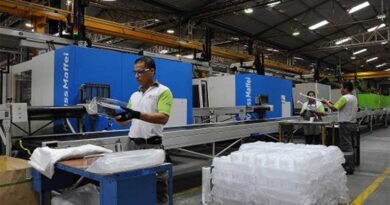UK officially in recession for first time in 11 years
 Image copyright TOLGA AKMEN
Image copyright TOLGA AKMEN The UK economy suffered its biggest slump on record between April and June as coronavirus lockdown measures pushed the country officially into recession.
The economy shrank 20.4% compared with the first three months of the year.
Household spending plunged as shops were ordered to close, while factory and construction output also fell.
This pushed the UK into its first technical recession – defined as two straight quarters of economic decline – since 2009.
The Office for National Statistics (ONS) said the economy bounced back in June as government restrictions on movement started to ease.
Jonathan Athow, deputy national statistician for economic statistics, said: «Despite this, gross domestic product (GDP) in June still remains a sixth below its level in February, before the virus struck.»
The ONS said the collapse in output was driven by the closure of shops, hotels, restaurants, schools and car repair shops.
The services sector, which powers four-fifths of the economy, suffered the biggest quarterly decline on record.
Factory shutdowns resulted in the slowest car production since 1954.
The economic decline was concentrated in April, at the height of lockdown.
On a month-on-month basis, the economy grew by 8.7% in June, building on growth in May.
Clothes stores, bookshops and other non-essential retailers opened their doors in England on 15 June, while construction work jumped after large declines in the previous two months.
Despite this, UK Chancellor Rishi Sunak said the economic slump would lead to more job losses in the coming months.
He said: «Hundreds of thousands of people have already lost their jobs, and sadly in the coming months many more will.
«But while there are difficult choices to be made ahead, we will get through this, and I can assure people that nobody will be left without hope or opportunity.»
The first official GDP numbers for this period show over a fifth of the value of the economy lost since the beginning of the year, mainly driven by the severe shutdown in April.
The six-month fall is on course to be the worst in the G7 group of countries, though within Europe, the Spanish economy has so far fallen a little more.
The sheer extent and speed of the contraction, though not surprising, reflects an economic hit that has affected every high street and town and city in the country.
The economy is now growing again, but not all the lights that were dimmed in order to protect public health in the spring, will be turned back on.


